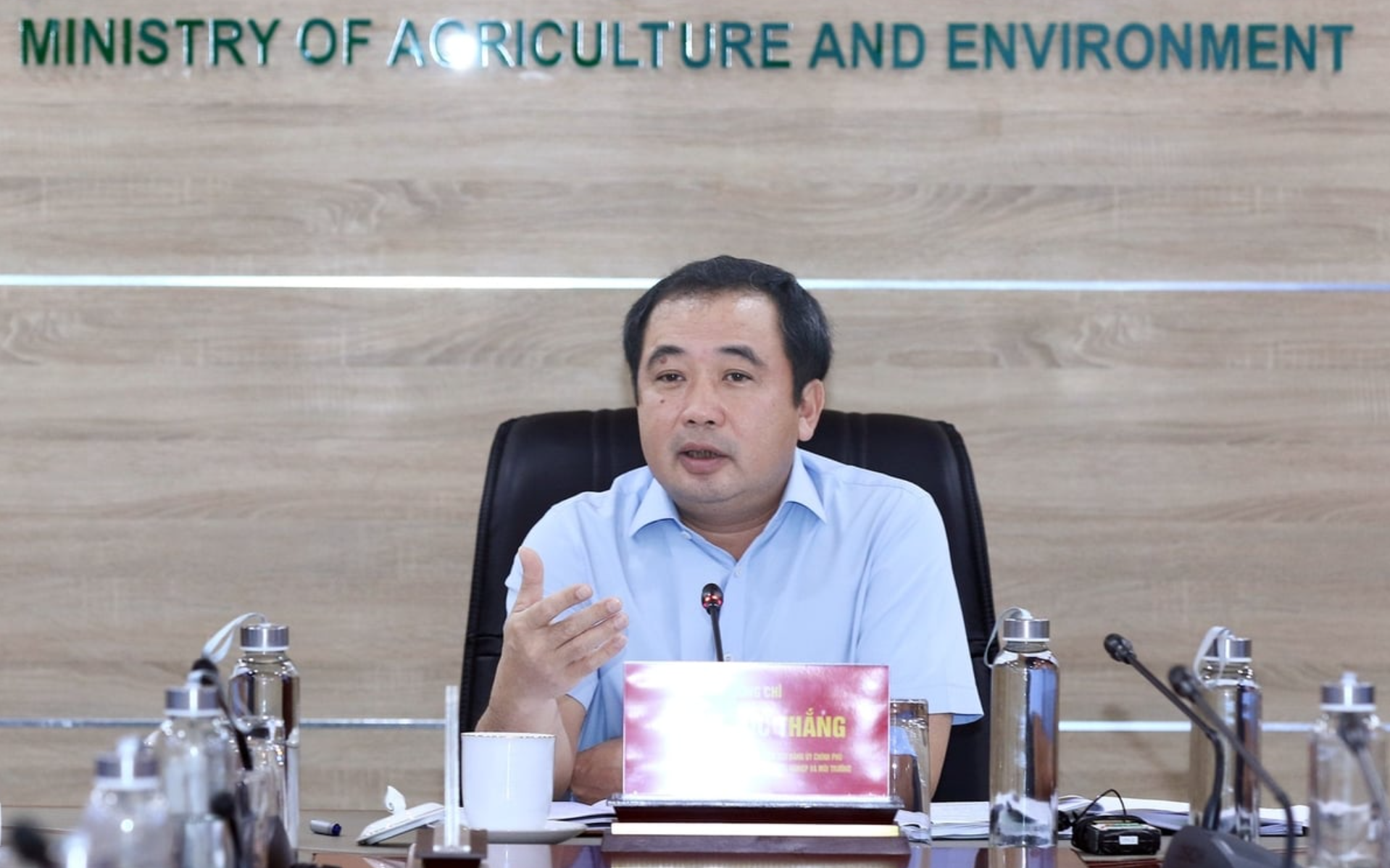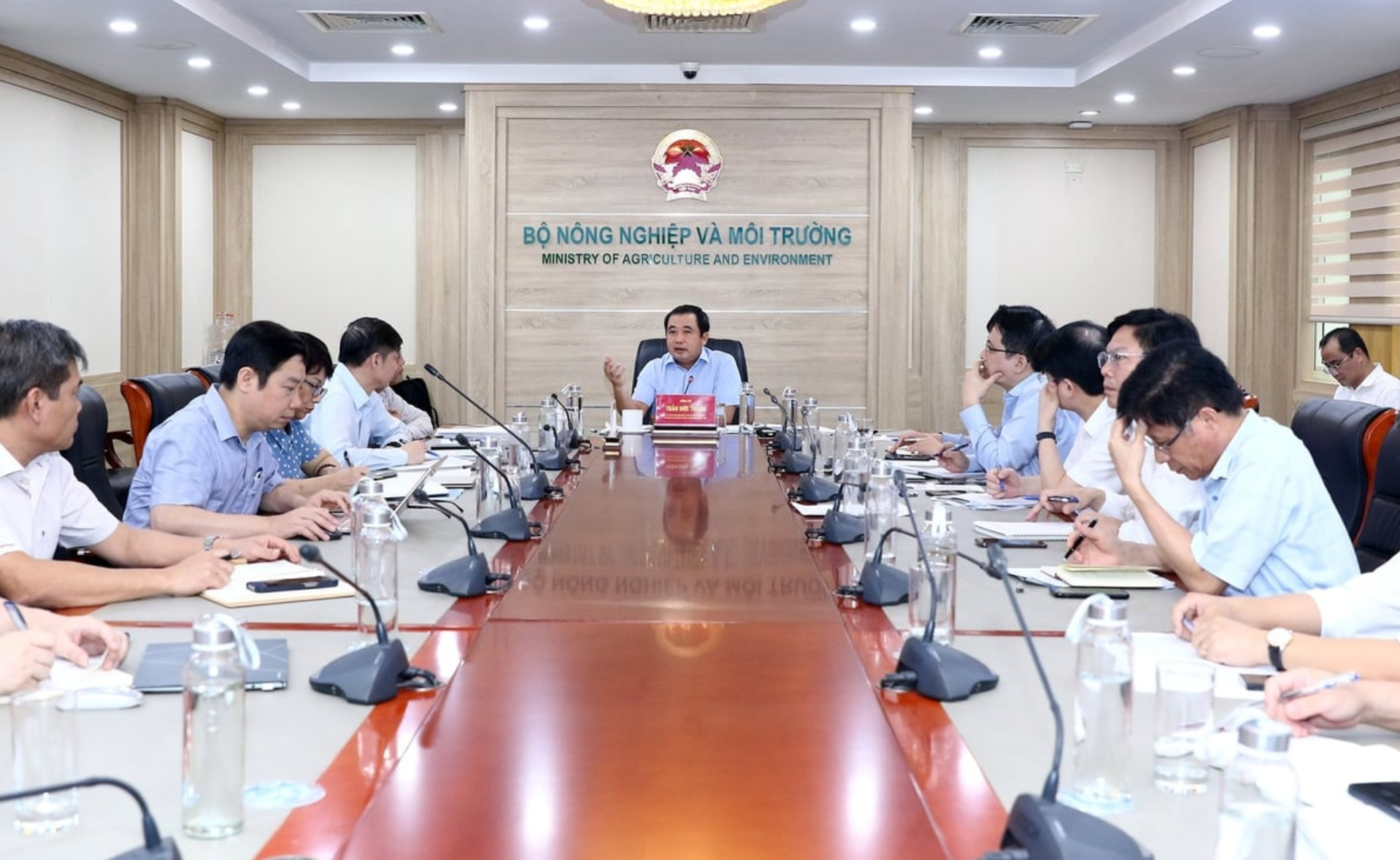On August 21, Acting Minister of Agriculture and Environment Tran Duc Thang, together with Deputy Minister Nguyen Quoc Tri, chaired a meeting with the ministry’s specialized units.
Acting Minister Thang stressed that forest resources are not only an “ecological shield” but also the livelihood of millions of people, underscoring the urgent need for comprehensive reforms in forest management, protection, and development.
 Acting Minister of Agriculture and Environment Tran Duc Thang chaired a meeting with the ministry’s specialized units.
Acting Minister of Agriculture and Environment Tran Duc Thang chaired a meeting with the ministry’s specialized units.Speaking at the meeting, the Natural and Biodiversity Conservation Agency (NBCA) proposed strengthening inter-agency coordination and reviewing the Biodiversity Law to bring it in line with international commitments. It also recommended maintaining the National Biodiversity Conservation Plan, consolidating personnel, and mobilizing additional resources.
Meanwhile, the Forestry Department and Forest Protection Department suggested introducing more flexible financial mechanisms for forest management boards to ensure regular funding and allow project implementation from both domestic and international sources. Delegates also agreed on the need to streamline the research system to avoid overlaps and called for special policies to retain staff working directly in national parks.
 General view of the meeting.
General view of the meeting. According to official data, Vietnam’s total forest area is about 14.8 million hectares, of which 14.5 million hectares are managed by local authorities, while around 300,000 hectares remain under central government management. This highlights the crucial role of localities in forest protection.
Speaking at the meeting, Deputy Minister Nguyen Quoc Tri noted the overlapping of multiple forest-related programs - ranging from poverty reduction and agriculture to policies for ethnic minorities- resulting in fragmented resources. He emphasized that the forestry sector must focus on core tasks such as forest protection, fire prevention, and local support, while also strengthening Vietnam’s timber brand in international markets.
Acting Minister Thang demanded that forest statistics must reflect actual conditions rather than “virtual figures.” He encouraged mobilizing resources through forest environment leasing schemes, which have already been effectively applied in several provinces, generating revenue and creating jobs. In the long term, he said, the ministry will finalize a new Forestry Strategy aligned with sustainable development goals, environmental protection, and local livelihoods.
The meeting concluded with four key orientations:Accurately assess current forest status and area; Develop a comprehensive forestry strategy starting from 2026; Enhance management efficiency, human resources, and revenue from forests; and Promote research and training of high-quality personnel.
“If implemented consistently, these orientations will provide a solid foundation for sustainable forestry development, ensuring a balance of ecological, economic, and social benefits, and preserving forest resources for future generations,” Acting Minister Thang affirmed.